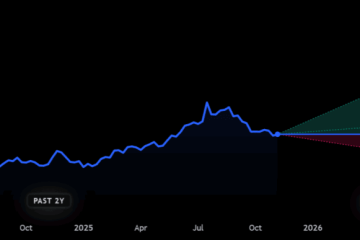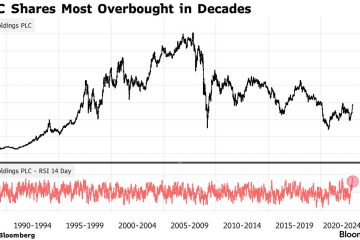Recent Trends Affecting Lloyds Share Price

Introduction
The Lloyds Banking Group, one of the largest financial services organisations in the UK, has been in the spotlight recently, particularly regarding its share price dynamics. The performance of Lloyds share price is crucial for investors, analysts, and market observers, as it reflects not only the health of the bank itself but also the broader economic climate in the UK. With economic uncertainty, interest rate fluctuations, and changes in banking regulations, understanding the factors influencing Lloyds share price is essential.
Current Share Price Trends
As of October 2023, Lloyds share price stands at approximately £0.50, having experienced a noticeable fluctuation over the past several months. The shares saw a peak near the end of September, where they reached £0.55 before a slight decline. The recent volatility can be attributed to various macroeconomic factors, including Bank of England’s monetary policy and inflation rates. The announcement of possible interest rate hikes has historically led to fluctuations in bank share prices, with investors speculating on profit margins.
Economic Influences
The Bank of England has maintained a cautious approach to interest rates this year, with its latest meeting indicating a potential increase in rates as inflation concerns persist. For banks like Lloyds, higher interest rates often result in improved net interest margins, which can boost profitability. However, rising rates may also lead to increased mortgage defaults, posing risks to banks. Analysts have been closely monitoring these developments, assessing how they would impact Lloyds’ short and long-term profitability.
Company Performance and Market Sentiment
Furthermore, Lloyds’ financial health has shown robustness with recent quarterly earnings reporting a profit increase thanks to reduced loan-loss provisions and growth in their investment arm. Investor sentiment has been cautiously optimistic, as the bank has demonstrated resilience despite market challenges. Additionally, Lloyds’ strategy to digitise services and improve customer experiences has garnered positive feedback from shareholders.
Conclusion
In conclusion, the Lloyds share price remains a critical barometer for investors in the UK financial sector. As economic conditions evolve and the company adapts its strategies to maintain competitiveness, fluctuations in share prices are expected to continue. Market analysts predict that, barring unforeseen economic events, Lloyds could see a slower growth trajectory but could stabilise as confidence in the economy returns. Investors should remain vigilant and informed about the ongoing developments and review their positions accordingly to navigate this evolving landscape.









